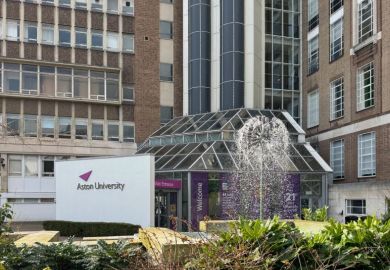The head of England’s funding council has praised the National Union of Students for launching “game-changing” legal action on behalf of students threatened with deportation after London Metropolitan University’s visa licence was revoked last August.
Speaking at the 10th annual conference of the European Network of Ombudsmen in Higher Education, Sir Alan Langlands, chief executive of the Higher Education Funding Council for England, said NUS involvement had been crucial.
The organisation had “played a blinder” by instructing law firm Bindmans to file a third-party claim against the UK Border Agency in support of London Met’s own High Court action, Sir Alan told delegates in Oxford on 12 April. While Hefce and London Met had responded well to the UKBA decision, “the NUS made a game-changing intervention in the courts”, he said.
The legal action helped win the students a temporary reprieve from deportation. They can now finish their studies after the Home Office last week reinstated the university’s right to sponsor international students.
He also repeated his criticisms of UKBA’s management of the case. “It was not handled in a particularly smart way,” said Sir Alan, who is leaving Hefce to become vice-chancellor of the University of Leeds this autumn.
He also told the conference, organised by the Office of the Independent Adjudicator, that he was working to ensure that the academy was not hit too hard by chancellor George Osborne’s spending review on 26 June. He believed that the sector would “go safely through until July 2015”, but warned that further austerity measures could be proposed after the next general election.
“After that, we’ll have to defend our corner once again,” he said.
Sir Alan warned that the current fees and funding system might not be sustainable in the long term because there was still uncertainty about the proportion of student debt that will not be repaid - a factor that could determine funding levels.
He asked whether David Willetts, the universities and science minister, was “100 per cent sure” that the government had got its sums right.
Register to continue
Why register?
- Registration is free and only takes a moment
- Once registered, you can read 3 articles a month
- Sign up for our newsletter
Subscribe
Or subscribe for unlimited access to:
- Unlimited access to news, views, insights & reviews
- Digital editions
- Digital access to THE’s university and college rankings analysis
Already registered or a current subscriber?




